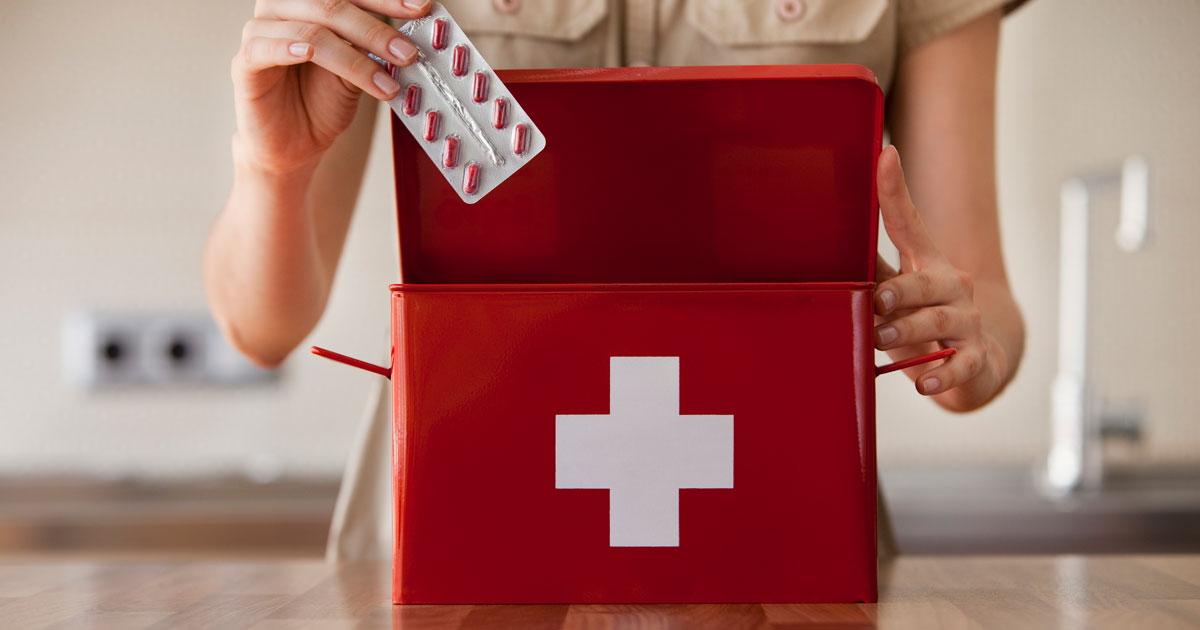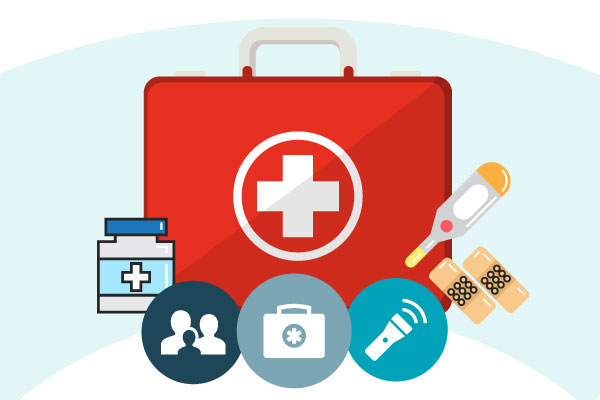First Aid
November 30, 2018

This month’s goal:
Be prepared to give first aid while waiting for an ambulance.

Many public places have a first aid kit, oxygen, or an AED (automated external defibrillator) to treat people. These items can only save lives if someone knows how to use them. Knowing how to apply a bandage, identify the signs and symptoms of shock, perform CPR or use an automatic external defibrillator (AED) can save a life. First responders may not be on the scene for five minutes or more. It is up to individuals like you to be ready to help someone who is injured.
Some items that should be included in a basic first aid kit are:
- Adhesive Tape
- Antiseptic Ointment
- Band-Aids
- Blanket
- Cold Pack
- Disposable Gloves
- Gauze Pads & Roller Gauze
- Hand Sanitizer
- Plastic Bags
- Scissors and Tweezers
- Small Flashlight and Extra Batteries
- Triangular Bandage
- If you travel with your pet, or if they are service or hunting animals, you may want to make a travel-sized pet first aid kit as well.
Contact your local fire department or American Red Cross chapter to learn what first aid classes are available in your area. Ask your employer if they will sponsor a class for your workplace, or take a class with your family or on your own.
Know what to do while waiting for an ambulance to arrive:
1. Call 911 instead of trying to take an injured or ill person to the hospital yourself.
2. Stay on the line with 911 and follow emergency instructions.
3. Stay calm and try to keep the patient calm.
4. Don’t move a patient who was injured in an automobile accident or fall, or who was found unconscious.
5. If the patient is cold, cover them with a blanket.
6. Don’t give an injured person anything to eat or drink (unless instructed by the 911 dispatcher).
7. Have someone watch for the ambulance and show the crew how to get to the patient.
8. Make or buy first aid kits for your home and car.
Being prepared doesn’t have to be hard or expensive. By doing one thing a month, you can make sure that you and the people who depend on you will be better prepared for whatever happens.
